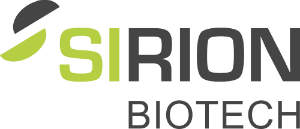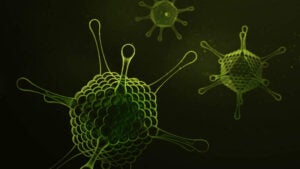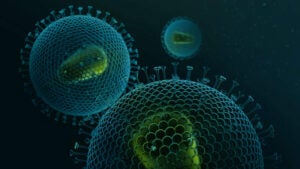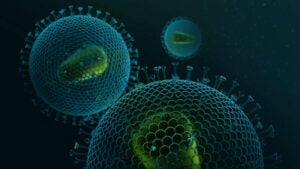Key Candidate hAd19a/64 Outperforms Gold-Standard hAd5 as a Vaccine Vehicle
A recent collaboration between University of Copenhagen’s associate professor Peter Johannes Holst, his research group, colleagues at Bogor Agricultural University, and Munich-based viral vector company SIRION Biotech demonstrated that key candidate hAd19a/64 can outperform counterpart and gold-standard hAd5 as a vaccine vehicle.
The team used the vector to express an antigen in mice and non-human primates (NHP), which resulted in a stable immunisation of the host against the antigen. The hAd19a/64 serotype could also maintain this effect in animals that had been pre-immunised against adenovirus C serotypes.
Pre-immunisation mimics a common immunity against type C serotypes in human populations, which threatens to limit the suitability of hAd5 for human therapies.
CTO and company founder of SIRION Biotech Dr Thirion said: “Adenovirus vectors are heavily tested as genetic antigen carriers, to vaccinate against infectious disease and in immune-oncology trials. The ability to elicit immune responses against a customisable antigen is their key feature.
“We demonstrated that our lead candidate hAd19a/64 can generate an immune response that mimics the effects of hAd5, with none of its downsides. It even surpasses it in some cases, such as providing a stronger and broader cluster of differentiation 4 (CD4+) T-cell response after modified vaccinia Ankara (MVA) boost in NHPs. This greatly elevates its chances to also succeed in clinical trials.”
Dr Peter Johannes Holst further explains: “hAd19a/64 has a strong natural tropism towards human dendritic cells, which present antigens directly to the immune system.
“At the same time, only a small fraction of people in the general population carry a pre-acquired immunity against this serotype. This means that the serotype combines an efficient transduction mechanism with a wide applicability.
“Most importantly, we were able to show that pre-acquired immunities against other, more common adenoviral serotypes, such as Ad5, do not lessen hAd19a/64’s efficiency.”
In a publication in Vaccine, Emeline Ragonnaud et al designed replication deficient hAd19a, hAd5 and MVA vectors expressing a papillomavirus (PV) antigen fused to the human MHC class II-associated invariant chain T-cell adjuvant, and investigated their immunogenicity in-vivo in mice and NHP.
After the successful application of their lead candidate, the team now plans to clear a chronic infection of PV from NHP as a proof-of-concept study.
With a confirmation of the hAD19a/64 technology, SIRION Biotech further strengthens its current portfolio of patented viral vector technologies. The company currently supplies technology licenses to five clinical trials.
Vice-president of business development (BD) and licensing at SIRION Biotech Dr Sabine Ott said: “This is exciting news for anyone working towards clinical vaccination or immune-oncology trials.
“Since this system can be adjusted to express nearly any possible antigen. We are excited to be able to give scientists who conduct research into the treatment and prophylaxis of serious human diseases a powerful new tool at hand.”






